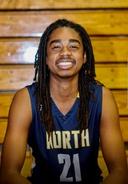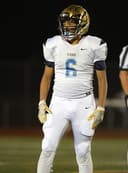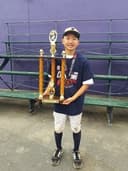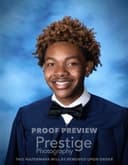
 2021 Highlights #2
2021 Highlights #2  2021 Highlights
2021 Highlights  #97 clears the ba...
#97 clears the ba... #97 tags runner o...
#97 tags runner o... #97 hits double t...
#97 hits double t... #97 interview
#97 interview #97 hits monster ...
#97 hits monster ... #97 hits monster ...
#97 hits monster ...When I was seven years old, I remember playing a simple game of softball at school. I had known little to nothing about the game, but luckily, I had a small glove that my parents had bought me from a prior Christmas, and I had thought that this was the time to put it to good use. During, the game I was placed at second base and one of my classmates had popped the ball up into the air. I had caught that ball, and once it landed in my glove, I had felt a sense of joy and adrenaline. One of the teachers present had given me kudos for making a decent play for a 7 year old little girl. Later that day, I told my parents about my achievement, and they went ahead and asked me if I wanted to play softball. In previous years, I had competitively danced, and I was really good at it, but I wanted to try something different. I hadn’t really played a sport before, but I was open to it, to see if it would be something that I would be interested in doing temporarily or long term. I remember when my parents took me to my first softball tryout and the coach at the time asked me if I knew what a catcher was and I replied to him, “I have no idea,” and he then proceeded to tell me about the position, what they do, and that catchers have an important role of deciding pitch style, keeping track of opponents, base running and defensive alignment. It all sounded like a foreign language to me not knowing anything about the position, but it sounded really cool. During the tryout we had thrown the ball around, worked on base running, catching the ball and hitting, the basic skills, but the coach noticed that I had a strong arm. Then after the tryout my parents asked me how I liked it and I told them it was fun, and that’s when I decided to play. At my first practice my coach had all of the players gather around so that he could assign out positions and he told all of us players that the first position that he needed to fill was the position of catcher. No one initially replied and because of the conversation that I had with him during the tryout and given that fact that there was dead silence, I raised my hand and said that I would do it. As you can imagine the rest is history and I’ve been a student athlete ever since. When you ask me what makes me a good candidate for your team, I can say without hesitation that not only do I have a high softball IQ, but that I’m coachable and willing to raise my hand and play any position that a coach has a need for. I’ve been trained as a catcher, but my skills are versatile so I can play other positions like 3rd base, 1st base, and outfield if needed and that is what makes me a good candidate, for which I’m dependable, I’m a leader on and off the field, and my teammates throughout my softball journey look up to me. With my catching experience I bring a perspective on the field that other players do not observe. As far as my academics, from an early age I’ve strived to do my best in the classroom which is reflective in my transcripts. I like to challenge myself and my parents have always instilled in me that academics is always the priority and if you take care of business in the classroom it allows you the opportunity and freedom to play freely on the softball field. Plus, if you can’t produce good grades in the classroom, then you won’t play period and I know at the collegiate level schools want student athletes who can perform in the classroom as well as on the field, so I have used that model throughout my academic and athletic careers. Lastly, in terms of my collegiate goals and aspirations I’m currently undecided with what I want to major in, yet I plan to narrow my focus after I get into college. However, I look forward to building relationships and becoming a strong independent woman who will be able to take matters into her own hands and I’m confident that by the time I finish my college career that I will be secure in whatever it is I choose to do. At this stage, all I know is that I want to make a change for people in need.
| Statistic | 2021 Varsity Team | 2020 Varsity Team | 2019 Varsity Team |
|---|---|---|---|
| BA | .383 | .414 | .435 |
| GP | 18 | 11 | 20 |
| AB | 60 | 29 | 69 |
| R | 18 | 3 | 18 |
| H | 23 | 12 | 30 |
| 2B | 2 | 1 | 5 |
| 3B | 5 | 2 | 1 |
| RBI | 22 | 9 | 17 |
| BB | 3 | 1 | |
| SO | 2 | 6 | 9 |
| OB% | .415 | .452 | .451 |
| Sac | 1 | ||
| SB/Att. | 9/10 | 1/1 | 3/4 |
| Put outs | 53 | 60 | 86 |
| Assists | 19 | 11 | 20 |
| Errors | 4 | 1 | 10 |
| Fld% | .947 | .986 | .914 |
| Thrown Out Runners | 2 | 3 | 5 |
| Attempted | 2 | 5 | 16 |
| Passed Balls | 0 | 4 | |
| Slug% | .586 | .579 | |
| HR | 1 |







